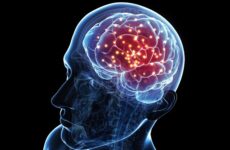
Jacob Taylor
By Jacob Taylor, special to The Campus Chronicle
End The Stigma. Black Lives Matter. Me Too. Make America Great Again. All these catchphrases have become overwhelmingly popular among Americans over the last several years. But what do they mean? Are they just words? Do we just say them because those around us are saying them, and they are all over our social media accounts now? Do we believe any of these words that everyone repeats all over the place?
Until recently, I was guilty of using several of the fad catchphrases without seeing the true meaning behind what the words meant. I was guilty of using “#ENDTHESTIGMA” for a long time because I saw it all over and thought it was another thing to say to be accepted by all my peers. I did this until it was something that affected my life personally.
2020 was a tough year for all of us. I do not think that I will find someone to say anything other than that. For me, 2020 was the hardest year of my 32 years of life. 2020 was the year that I was diagnosed with a mental disorder. Suddenly, the words that I was spewing out like word vomit to fit in were incredibly significant in my life.
In 2020, amidst all the craziness of a worldwide pandemic, murder hornets, an election that will certainly go into history books, and the most divide I think this nation has been through since the civil war; I was diagnosed with borderline personality disorder (BPD). Hearing this was a harder pill to swallow than I imagined it would be.
Those of us with BPD are just like all other people you see on the streets or in your classrooms. The only difference between those with BPD and without it is that we (I am using “we” as a collective term for those of us with BPD) feel emotions on such an intense level that it can make or break a good or bad situation.
BPD is also known as emotional intensity disorder (EID) which makes sense considering the range of emotions that we experience in an incredibly short amount of time. Happy emotions are great but can become overwhelmingly ecstatic. Sad or mad emotions can become incredibly dangerous for us.
What exactly is BPD/EID in the technical sense?
The Mayo Clinic writes “Borderline personality disorder is a mental health disorder that impacts the way you think and feel about yourself and others, causing problems
functioning in everyday life. It includes self-image issues, difficulty managing emotions and behavior, and a pattern of unstable relationships.
With borderline personality disorder, you have an intense fear of abandonment or instability, and you may have difficulty tolerating being alone. Yet inappropriate anger, impulsiveness and frequent mood swings may push others away, even though you want to have loving and lasting relationships.”
Reading that for the umpteenth time still rings true. In my personal experience, I have struggled with every aspect of what is said above. Relationships have been exceedingly difficult to manage, keeping jobs even has been proven to be painfully difficult. The mood swings, they are real. They are awful and can come out of nowhere.
I cannot speak for those who my actions and/or words have affected negatively. What I can do though is recognize my downfalls and do what I can to seek help managing the increasingly demanding situations that come along with BPD. I can make a promise to work hard towards improving myself and learn coping skills to survive each day to the best of my ability, so I am not a burden any longer.
Let us circle back to 2020. What I did was exactly that. I finally decided enough was enough and I went to my family doctor who referred me to a psychiatrist and a counselor. That is the most amazingly beneficial thing I have ever done for myself while at the same time the most terrifying thing I have ever done.
Since mid-2020, I have been seeing a therapist and a psychiatrist. I have gotten the correct medications and received personalized EMDR therapy to help me see myself in a positive light and move forward from all the tough times. Since I started going, I have worked in the same job, I got myself back into school for my human services associates degree, my relationships have improved, and I see myself so much better than I ever did before.
That being said, I still have hard days. I still struggle some days to even find the strength to get out of bed and face the day. On those days I must remember all my improvements, I must remember the skills that I have learned from therapy sessions and put them into practice. The phrase “this too shall pass” has become especially important and real to me.
The next time you see the hashtag #EndTheStigma or any of the other popular catchphrases on your social media account, remember that they are not just words. To many people, those words have a deep meaning and could be the basis for their entire existence.





Comments